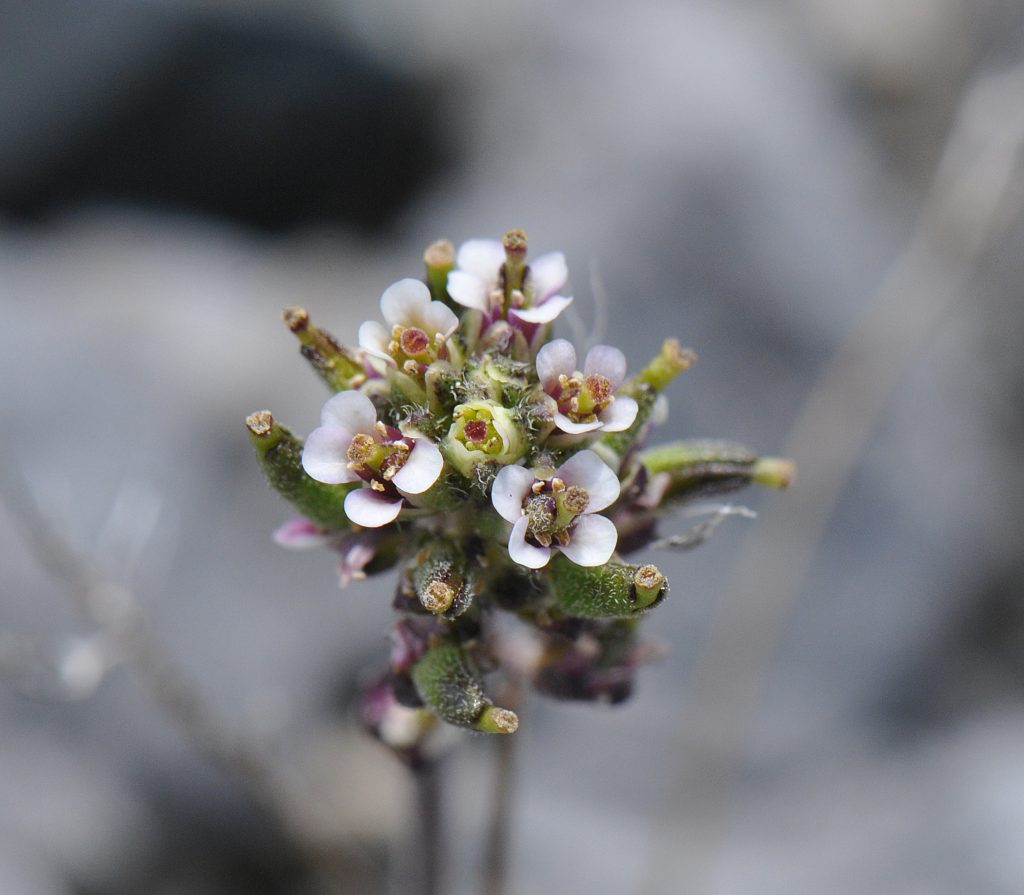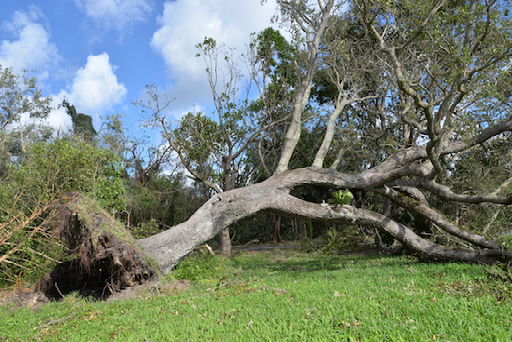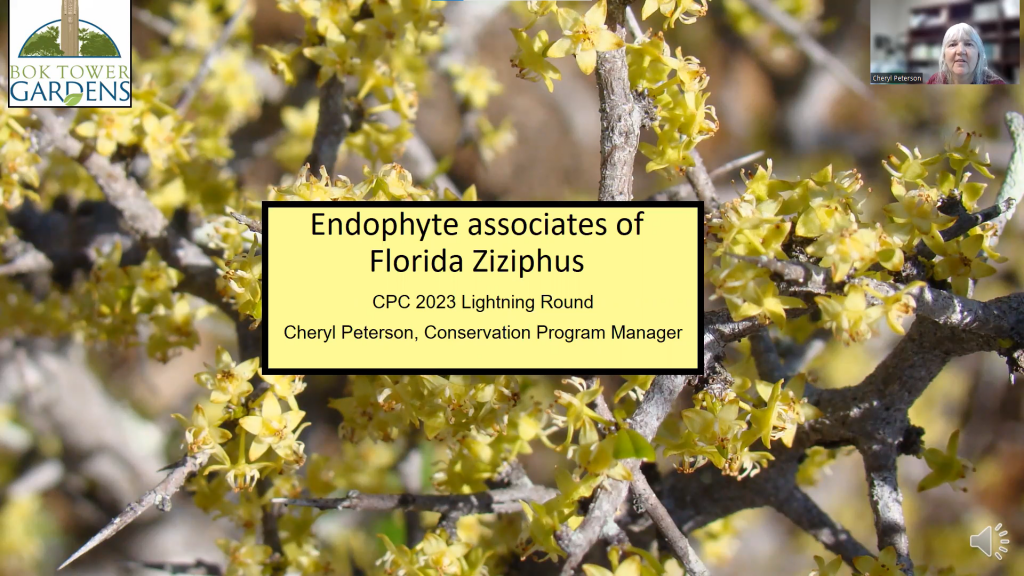
As we use what we have learned about storing seeds, propagating species, improving habitat, and reintroducing new populations, it becomes increasingly important to understand how factors in the environment influence the long-term health of a species. This includes plant-microbe interactions. Plant-fungi interactions are thought to be as evolutionarily as old as higher plants themselves. Fungi […]
Read More…
One of the introduced individuals of Ziziphus celata. The seedling was caged to reduce herbivory. Photo credit: Christy Edwards. […]
Read More…
An introduced population of Ziziphus celata, the seedlings were caged to reduce herbivory. Also shown Stacey Smith, who worked on the introductions as part of the plant Ecology lab at Archbold Biological Station. Photo credit: Christy Edwards. […]
Read More…
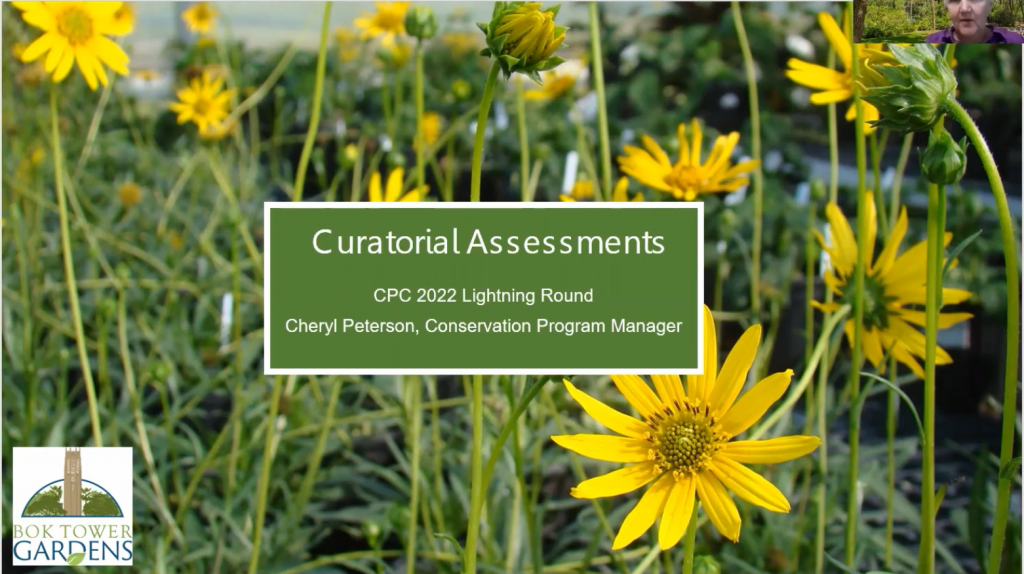
The Rare Plant Conservation Program at Bok Tower Gardens maintains rare plant germplasm of north and central Florida endemic species as either living plants or in a seed collection. There are currently ~2,000 plants and over 2 million seeds of 70 species in the ex situ collection. Each year, a subset of seeds are withdrawn […]
Read More…
Nearly all of the seeds of Florida Ziziphus (Ziziphus celata) are produced in the National Collection at Bok Tower Gardens. The small, few natural populations are clonal or consist of the same mating type, and Florida Ziziphus is an obligate outcrosser. Most of the genotypes grow together in the National Collection, and open pollination ensure […]
Read More…
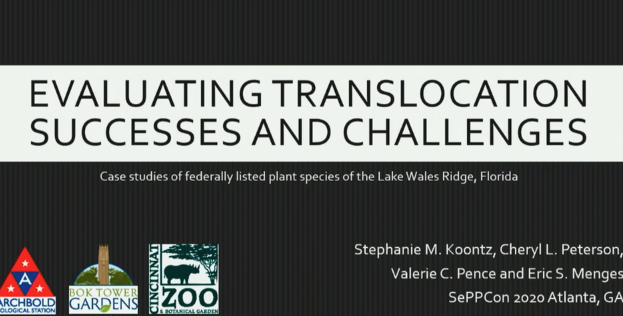
Stephanie Koontz, Archibold Biological Station, Cheryl L. Peterson, Bok Tower Gardens, Valerie C. Pence, Cincinnati Zoo and Botanical Garden, Eric S. Menges, Archbold Biological Station Translocations are an increasingly utilized tool for rare plant conservation. Urbanization along the Lake Wales Ridge, in southcentral Florida, has led to 85% loss of native Florida scrub and sandhill. […]
Read More…
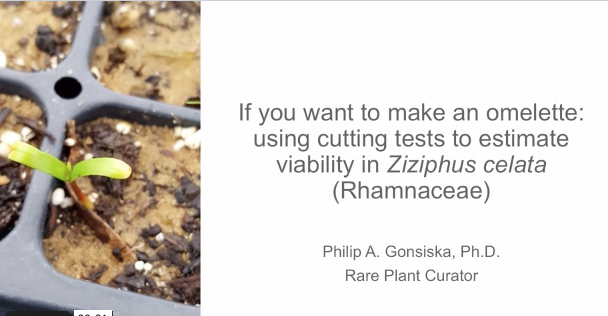
Philip Gonsiska,Bok Tower Gardens Ziziphus celata is an endangered shrub endemic to Polk and Highlands Counties in central Florida. Germination in this species has generally been very low, and previous observations have suggested that upwards of 75% of seeds set by Z. celata may not be viable. In January 2019, cutting tests were conducted to […]
Read More…

